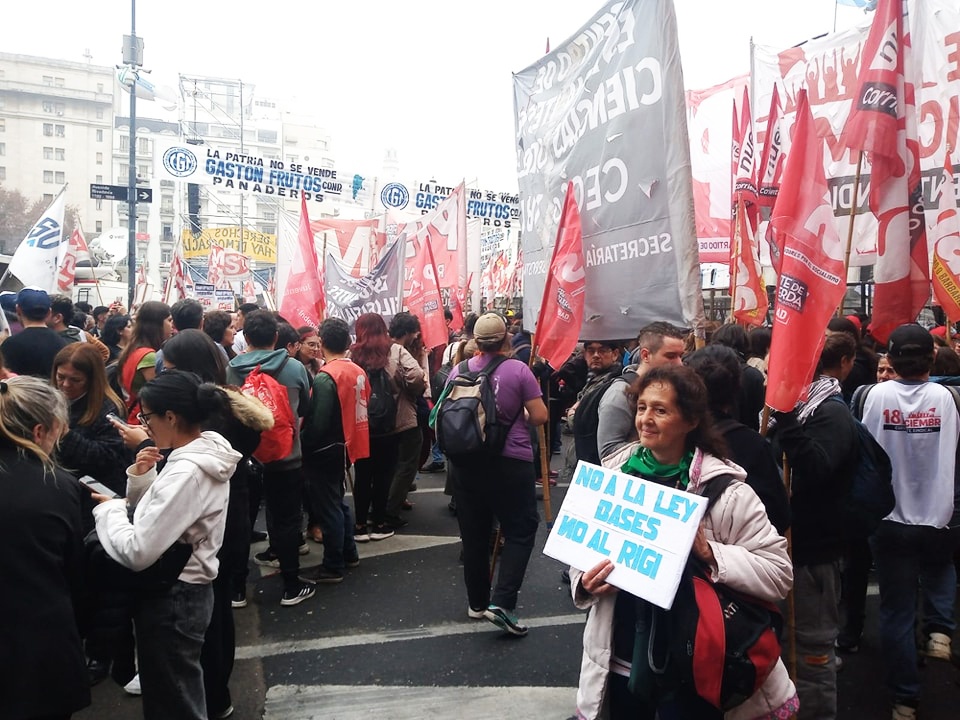19 June, 2024Unions in Argentina condemn the Senate’s passing of the reform bill, which they say will undermine sovereignty, roll back labour rights and leave future generations without prospects.
After a heated and lengthy debate, the Argentine Senate passed the reform bill known as the Law for the bases and starting points for Argentines' freedom on 12 June. On the day of the vote, thousands of workers rallied in front of the National Congress calling on Senators to vote against the bill, which runs counter to the interests of the Argentine people.
In a brutal response from the government, six opposition MPs ended up in hospital after being pepper-sprayed. Tear gas was also used against the peaceful protesters.
Journalists and protesters were pushed back by rubber bullets, with more than 200 people requiring medical treatment as a result. More than 36 people were arrested, imprisoned and charged with sedition and terrorism, charges that carry heavy prison sentences – another clear sign that protests have been criminalized by the national security minister, Patricia Bullrich.
The bill had already been passed by the Chamber of Deputies and was awaiting approval by the Senate. During the debate, senators made some amendments and the bill will now return to the lower house for those amendments to be approved, before being enacted by the government. If two thirds of the Chamber of Deputies vote to reject the amendments, the original text, which is even more harmful to workers, will become law.
Before the result of the vote was announced, union representatives read out a statement prepared by the demonstration organizers saying that the bill promoted policies that would erode workers’ purchasing power, destroy production capacities, create unemployment and wipe out the progress made in creating fairer labour relations.
The bill passed by the Senate gives the president the power, for a one-year period, to reform or adopt laws without having to go through Congress. For the unions, this is a violation of the country’s Constitution and the republican principle of the separation of powers.
Senators also shortened the list of state-owned companies that the government can privatize and reduced the number of state agencies that it can shut down. However, the government will still be able to sell off a number of state-owned companies.
Senators also approved the Incentive Regime for Large Investments (RIGI), which the unions say will flood the country with foreign and multinational capital without any kind of state control, and will allow strategic public and natural resources to be exploited, which will lead to further deindustrialization.
The social security reform was also passed – it has been condemned by unions because it will create more informal work, reduces coverage and increases the retirement age for women.
IndustriALL regional secretary, Marino Vani, says:
“It is disgraceful and an affront to democracy, voters and the people of Argentina. Supporters of democracy worldwide should be truly alarmed that Argentina's President has been granted such extensive powers for a year.
"The bill was passed by only one vote, so the Milei government does not have a large majority. We stand in solidarity with the people of Argentina who are struggling and will continue to support our affiliates in their fight to get these laws repealed.”


